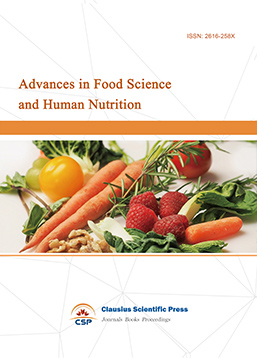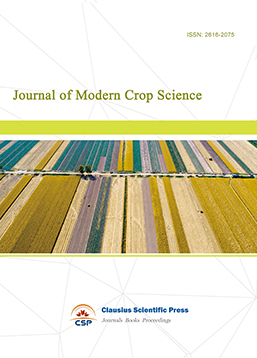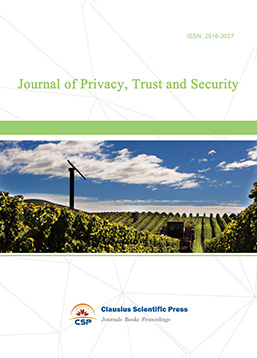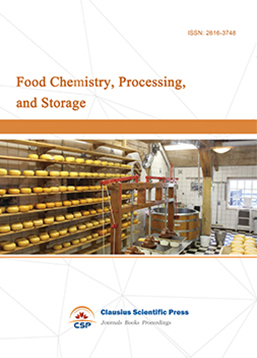Experimental Study on the Effects of Guangxi Sweet Tea and Shutangbao on β-amyloid Protease 1 (BACE1) and Cognitive and Memory Functions in Mice Exposed to Maltol Aluminum
DOI: 10.23977/pnssi.2024.030102 | Downloads: 17 | Views: 1943
Author(s)
Wenjin Huang 1, Xuemei Li 1, Zhumei Wei 1, Linlu Chen 1, Yongfu Tang 1, Jiaguo Liang 1, Bowei Jiang 1, Linfeng Zhong 1, Zukang Deng 1, Shuqiu Zhang 2,3
Affiliation(s)
1 College of Clinical Medical, Youjiang Medical University for Nationalities, Baise, Guangxi, 533000, China
2 Baise Sober Technology Co., Ltd., Baise, Guangxi, 533000, China
3 Guangxi Xinghuo Biotechnology Co., Ltd., Baise, Guangxi, 533000, China
Corresponding Author
Shuqiu ZhangABSTRACT
To explore the impacts of Guangxi sweet tea and Shutangbao on β-amyloid protease 1 (BACE1) in aluminum maltol-poisoned mice and compare their effects on mice's cognitive and memory functions. Sixty KM mice were randomly grouped. Mice in the model group, treatment group 1 (with Guangxi sweet tea), and treatment group 2 (with Shutangbao) were intraperitoneally injected with 0.3ml aluminum maltol solution per mouse for 30 days. The Y-maze test measured memory[1]. Serum and brain tissue were sampled for relevant detections including biochemical indicators and enzyme activities. For blood glucose, significant differences were seen among groups before and after modeling and after taking medicine. For enzyme activities, β-secretase increased in the model group but decreased in treatment groups. α- and γ-secretase activities were higher in the normal group. These enzyme changes are closely related to the pathological process of Alzheimer's disease, suggesting that the intervention of sweet tea and Shutangbao may have a positive impact on alleviating cognitive impairment. Both sweet tea and Shutangbao can lower blood glucose. Aluminum maltol affects BACE1 expression, impairing memory. They may regulate BACE1 via blood glucose reduction and improve memory effectively.
KEYWORDS
Mice; Blood Sugar; Learning and Memory Ability; Aluminum Maltol; BACE1; TreatmentCITE THIS PAPER
Wenjin Huang, Xuemei Li, Zhumei Wei, Linlu Chen, Yongfu Tang, Jiaguo Liang, Bowei Jiang, Linfeng Zhong, Zukang Deng, Shuqiu Zhang, Experimental Study on the Effects of Guangxi Sweet Tea and Shutangbao on β-amyloid Protease 1 (BACE1) and Cognitive and Memory Functions in Mice Exposed to Maltol Aluminum. Plant Nutrition & Soil Science International (2024) Vol. 3: 9-18. DOI: http://dx.doi.org/10.23977/pnssi.2024.030102.
REFERENCES
[1] Zhu Xiaoying, Huang Guangyan, Li Qiuping, Huang Lingling, Tao Jiying, Zhang Shuqiu. Observation on the effect of Shutangbao oral liquid in treating type 2 diabetic mouse models[J]. Guangxi Medical Journal, 2013, 35(01):35-37.
[2] Zuo Pingping. Metabolism of β-amyloid peptide and Alzheimer's disease[J]. Labeled Immunoassays and Clinical Medicine, 2001(01):34-37.
[3] Postina R. A closer look at α-secretase[J]. Curr Alzheimer Res, 2008, 5(2):179-186.
[4] Wang Yuechun, Wang Zidong, Sun Liming, He Sichun, Bai Zhiquan. Y-maze test method for animal learning and memory ability (review)[J]. Journal of Jinan University (Natural Science and Medicine Edition), 2001(05):137-140.
[5] Liu Junhui, Zhou Xiaolei, Weng Mingzuan, Wang Shuo. Hypoglycemic effect of Guangxi sweet tea polyphenols on alloxan-induced diabetic mice[J]. Pharmacology and Clinics of Chinese Materia Medica, 2014, 30(06):51-54. DOI:10.13412/j.cnki.zyyl.2014.06.016.
[6] Cheng Xiaolin, Yu Qingjiang, Wang Jiazhu. Harm of aluminum to human health and prevention and treatment[J]. Journal of Heze Teachers College, 2004(04):57-60. DOI:10.16393/j.cnki.37-1436/z.2004.04.016.
[7] Tadahiro K. The role of FOXO1 in β-cell failure and type 2 diabetes mellitus.[J]. Nature reviews. Endocrinology, 2013, 9(10):615-623.
[8] Li Fengling, Long Qijun, Wei Aibo, et al. Effect of Shutangbao on blood glucose in alloxan-induced diabetic mice[J]. Journal of Youjiang Medical University, 2009, 31(02):162-164.
[9] Castorina Alessandro et al. Early effects of aluminum chloride on beta-secretase mRNA expression in a neuronal model of beta-amyloid toxicity. [J]. Cell biology and toxicology, 2010, 26(4):367-377.
[10] Luo Y, Niu F, Sun Z, et al. Altered expression of Abeta metabolism-associated molecules from D-galactose/ AlCl(3)induced mouse brain. Mech Ageing Dev, 2009, 130(4):248-252.
[11] Fiorelli T, Kirouac L, Padmanabhan J. Altered processing of amyloid precursor protein in cells undergoing apoptosis [J]. PloS one, 2013, 8(2):57979.
| Downloads: | 195 |
|---|---|
| Visits: | 11601 |

 Download as PDF
Download as PDF



